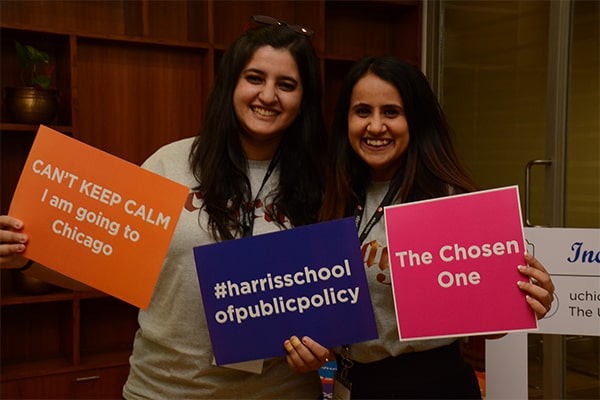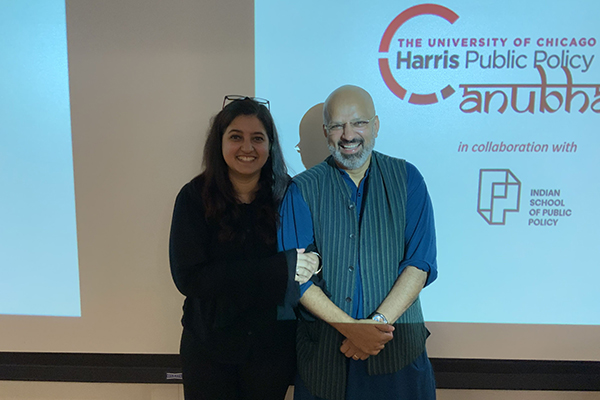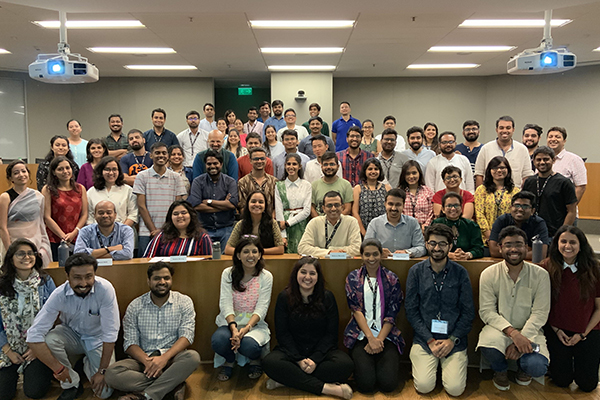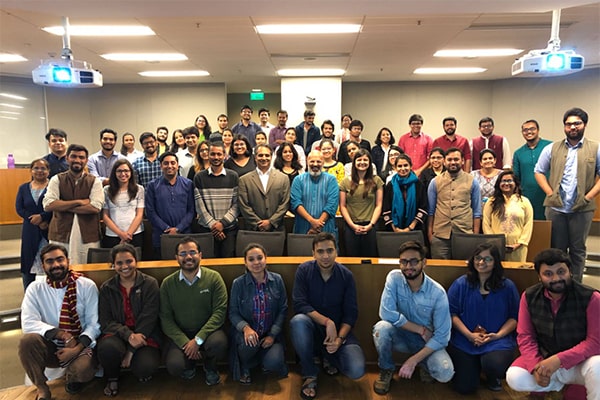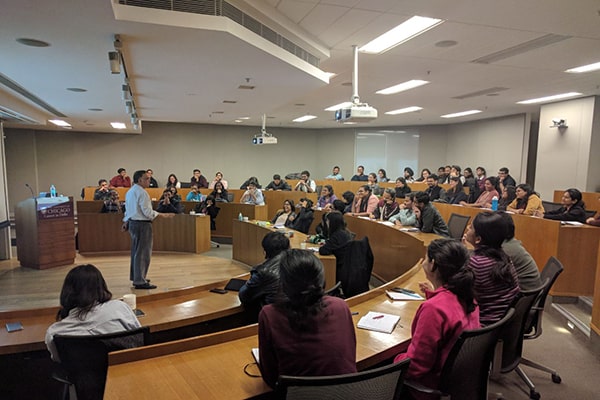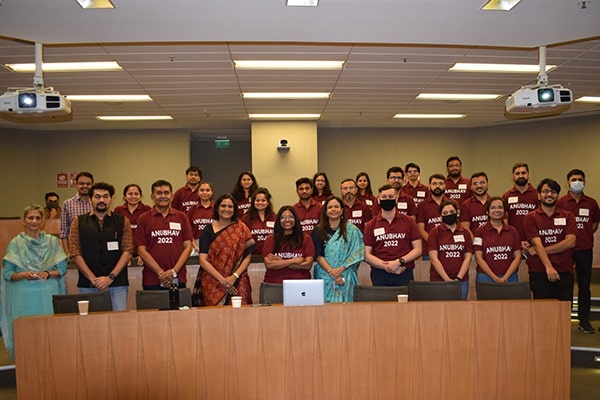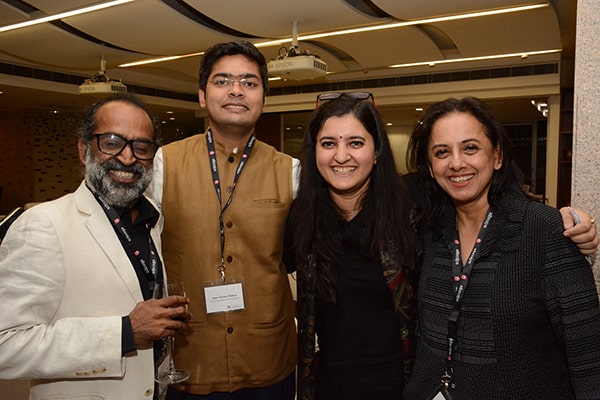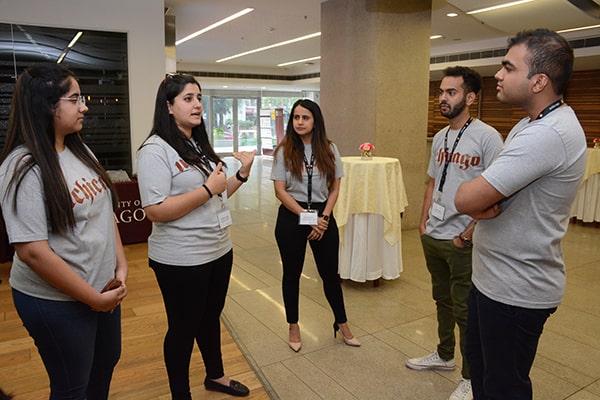Cheistha Kochhar Anubhav Lecture Series
In honour of what would have been Cheistha Kochhar’s birthday, we are proud to announce that the Anubhav Lecture Series has been rebranded as the Cheistha Kochhar Anubhav Lecture Series.
This rebranding pays tribute to the late Cheistha Kochhar, who, as the former Senior Advisor for Strategic Initiatives at the Harris School of Public Policy, originally conceptualised the series in 2017 to bridge the skill gap for social impact leaders in South Asia.
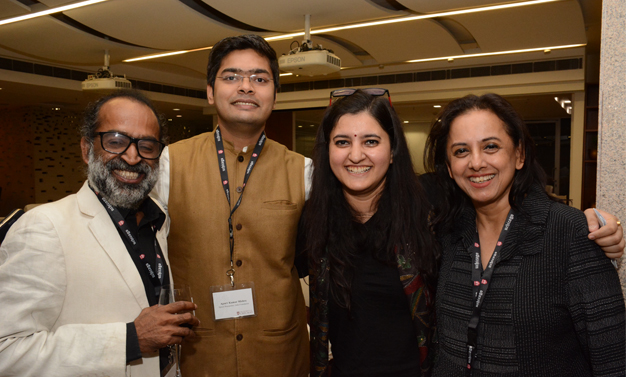
Background
Building capacity of those who have chosen to build the nation
Anubhav was designed to bridge the skill gap for grassroots changemakers in India transitioning to structured organizations by enabling them to codify their ground initiatives into transferable knowledge while equipping them with skills like self-awareness, navigating organizational dynamics, and goal-setting
Designed around a set of 10 sessions delivered by diverse industry leaders, Anubhav is a first of its kind initiative to bring together grassroots leaders from different parts of the country and nurture them with a cohesive energy towards social change.
In 2019, the Indian School of Public Policy became the official partner for this flagship lecture series. With the onset of the COVID-19 pandemic, Anubhav adapted by transitioning to an online format and expanding its reach across South Asian countries.
Highlights
-
400 + alumni across India and South Asia
-
7 batches have graduated since
2017 -
Participation from 8 South Asian countries
Highlights From Our Sessions
Program Design
The Anubhav Lecture Series is grounded in three core pillars that aim to empower individuals transitioning from grassroots work to structured organizations. These pillars provide a holistic framework for nurturing self-awareness, understanding group dynamics, and defining personal goals to create sustained impact. The three pillars are:
1. Understanding yourself
This pillar focuses on the importance of being self-aware and empathetic towards oneself. Recognizing personal strengths and needs is critical for developing comfort with oneself, which allows finding and delivering value in any environment.
2. Building comfort with your ecosystem
Through these modules fellows identify their own motivations and recognize their value within different ecosystems. While self-comfort is about the individual, this pillar focuses on understanding group behavior, team dynamics, and distinguishing individual vs. group identities. It builds skills to lend value to and borrow identity from environments in a balanced way.
3. Working towards your goals
Having comfort with self and the surroundings enables envisioning personal goals and courage to pursue them. Being aware of differences between self-perception and external perception leads to greater clarity on who one is and aspires to be. Key skills like giving/receiving feedback, reflecting, and acting on it are nurtured to develop this “goal for self.”
Past Anubhav Faculty
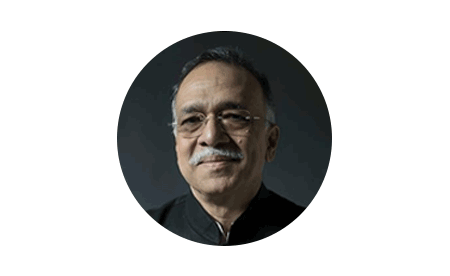
Pramath Raj Sinha
Founder and Trustee, Ashoka
University

Shankar Maruwada
Former Head of Demand
Generation, AADHAAR
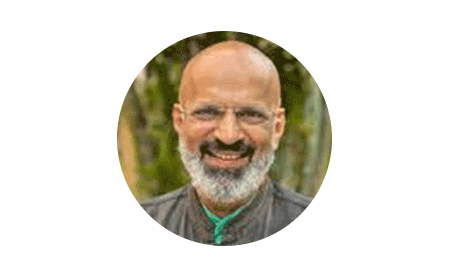
Luis Miranda
Co-Founder, Indian
School of Public
Policy
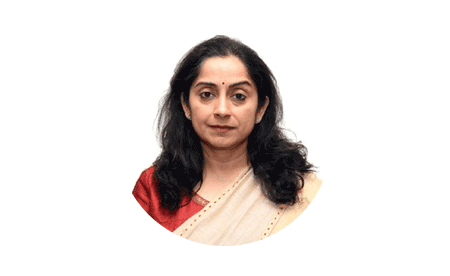
Dr. Shamika Ravi
Member, Economic Advisory Council to the Prime Minister

James Abraham
Former Managing Director,
Boston Consulting Group,
India
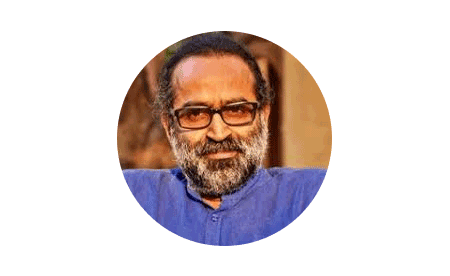
Santosh Babu
Founder and
Chairman, OD
Alternatives
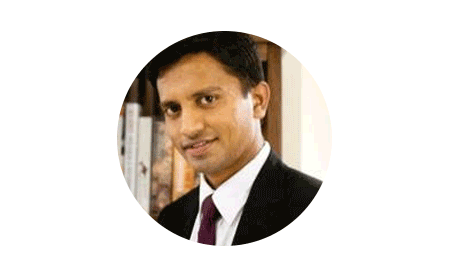
Prasanna Karthik
Former Policy Advisor to the Defence Minister of India
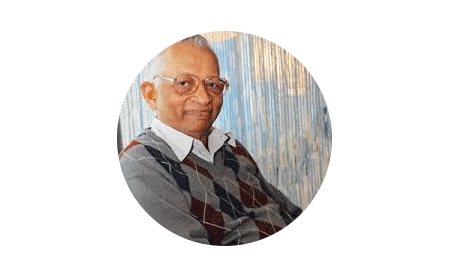
N.C Saxena
Former Director, LBSNAA

Shubhashis Gangopadhyay
Founding Dean, ISPP and Founder & Research Director, India Development Foundation

Sandeep Ahuja
CEO and Co-founder Operations ASHA, Ex-IRS officer, and Harris alumni
Programme Modules
The Anubhav Lecture Series comprises a curated set of 10 modules linked to one of the core pillars, designed to equip fellows with critical professional skills to amplify their social impact after experiencing grassroots realities.
Understanding the Self (Who are you?)
Spending a few years with extremely disenfranchised communities can make one question their own worth and importance in the larger ecosystem. After witnessing people live in exceedingly harsh, almost inhumane conditions, it is natural that one’s focus may shift from their own thoughts and hardships to that of others. While it is important and desirable to be empathetic to others, it is equally important to be aware and empathetic towards oneself. This module helps fellows in recognizing and embracing their own strengths and needs and work on developing that comfort with self that allows one to find and deliver value in any space and environment.
The Art of Storytelling: The Art and Science of Influence
The value of ideas lies in the ability to convince others to implement them. This module introduces skills for pitching ideas convincingly to varied audiences like friends, bosses or investors. It covers the key questions fellows must ask themselves about their idea to establish its feasibility. Techniques for seeding thoughts into others’ minds and making them stakeholders in the idea’s success are explored. The importance of listening to different perspectives to win people over is also highlighted.
Group Dynamics
While influencing individual outcomes is easier, greater impact comes from leveraging the power of collectives. This module focuses on the creation and evolution of groups, and how individual interactions affect group norms. It aims to help fellows committed to larger causes master the art and science of harnessing the power of groups.
Logical Problem Solving: Transforming Ideas to Action
Out of the numerous problems observed in professional ecosystems, this module guides fellows on identifying which ones are truly worth solving. It covers the critical questions to ask before deciding to solve a problem. This module also focuses on frameworks for converting problem diagnosis into real-life interventions that provide solutions. fellows learn to flesh out ideas through effective research and execute that research into fruitful action.
Principles of Effective Communication
Effective communication is crucial to enhance performance, both personally and professionally. It includes ways in which people give and receive information in non-verbal, verbal and written formats. It also includes how people make meaning of this information and how they use it. Leading a team, giving a presentation, sitting for an interview, writing that important email- all these require communication skills. Finally, good communication ultimately boils down to engaged listening. In this course we will study the key concepts of effective, professional communication-both written and verbal.
How to use Data Effectively: Tools for sharing Insights
In the data-driven 21st century, being comfortable with data and deriving insights from it is essential in the development sector. This module aims to build comfort with basic data handling tools among fellows. It also introduces techniques for impactful presentations to share data-driven insights accessibly.
Networking and the Art of Building Relationships
The objective of this course is to help the fellows to look at networking as meaningful relationship building that can enhance their ability and opportunity to make a difference. Fellows will learn the art of cultivating lasting and meaningful relationships that how to foster authentic connections that endure across ages, sectors, and geographies. Fellows will gain valuable strategies and techniques to navigate the complexities of modern networking.
Giving and Receiving Feedback
Reflecting on actions and deriving insights for subsequent steps is key to continuous learning. This module underscores the importance of self-reflection and provides guidance on pertinent self-reflective questions. The aim is to help participants gain insights that can help fulfill their life missions through a periodic reflection-action loop.
Learning to Lead
Development practitioners often work in complex, diverse, and dynamic environments. Strong leadership skills are essential to effectively guide teams, collaborate with stakeholders, and drive projects towards successful outcomes. fellows will explore key topics such as conflict resolution, decision-making, team building, and ethical leadership. The course emphasizes self-awareness, emotional intelligence, and critical thinking, empowering fellows to navigate challenges, inspire teams, and drive positive change within their organizations.
Reflection Action Loop
Reflecting on actions and deriving insights for subsequent steps is key to continuous learning. This module underscores the importance of self-reflection and provides guidance on pertinent self-reflective questions. The aim is to help fellows gain insights that can help fulfill their life missions through a periodic reflection-action loop.
Batch Demographics
- The lecture serries has seen participation from up to 15 states in India in the past cycles. The online version saw participation from countries such as Afghanistan, Bangladesh, Bhutan, India, Maldives, Nepal, and Sri Lanka
- 45 fellows from a organizations such as Gandhi and Teach for India Fellowships, NITI Aayog, Tata Trusts, various Indian ministries and development agencies, are selected from a competitive applicant pool.
- The average work experience of an Anubhav fellow is 2-3 years


